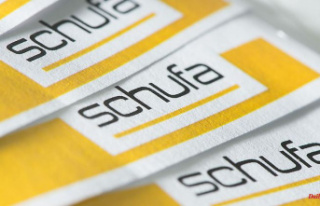Dead plants are a popular gift for Valentine's Day. Because men in particular do not always find the right words on day X or elsewhere in life to express their love. But at least today roses are dutifully given away in many places. Which Öko-Test does not think is a good idea.
Giving flowers is a joy. It doesn't matter whether it's just in between or on special dates such as birthdays, Mother's Day or Valentine's Day. At least that's what the florist industry claims. Roses in particular are considered the flowers of love and are given away to loved ones on February 14th, as is the case every year. As a sign of deepest appreciation and solidarity. Apart from the fact that such tokens of love should be demonstrated from time to time - ideally around the clock - i.e. 365/24/7 - and not by a bouquet of dead plants, but by words and deeds, many resort to compulsory and Embarrassment variant and give away roses.
As a result, on February 14th, the airlines are increasing their capacities to bring hundreds of tons of chilled roses to Germany by cargo plane from South America and East Africa, so that it can feel like it rains red roses in this country at least once a year. Also on board, however: a lot of spray poisons - including those whose use has long been banned in the EU, as an examination by Öko-Test of 21 rose bouquets - including six with a declared Fairtrade label - shows. Prices range from EUR 1.99 for twelve roses to EUR 39.95 for eight roses.
Result? More than three quarters of the roses fail with "poor" or "insufficient", including the expensive bouquets of the flower mailers Fleurop and Euroflorist. Only one bouquet in the test cuts "good" - the "Fairtrade roses, white-pink-red mix" from Aldi Süd for 2.99 euros.
Not a single bouquet in the test comes without a pesticide cocktail, every third even contains a two-digit number of pesticides. The "Fleurop Rosenstrauss Colorful Roses" (insufficient", 27.95 euros) surpasses all of them. The laboratory found residues of 21 different pesticides in it. Ten spray poisons are even those that the testers classify as particularly questionable. In this Problematic groups end up, for example, with compounds that, according to current studies, are definitely or probably carcinogenic, mutagenic, reproductively harmful or toxic to bees.
All in all, Öko-Test feels compelled to give eleven ratings of “inadequate” because of such stress. Among other things, the "Flower Arts Fairtrade bouquet of hybrid teas, yellow" (net, 2.99 euros), "Hybrid Venus, pink" (Blume2000, 4.99 euros), "bouquet of roses, yellow" (Kaufland, 2.99 euros) and the "Orange Rosen" from Blumenshop.de for 22.95 euros and the "Rosenbouquet Liebe" from Euroflorist (27.99 euros) as test losers.
To make matters worse, it is generally permitted to import products into the EU that are contaminated with pesticides whose use is banned in the EU. On the other hand, there are no legal limit values for pesticide residues on flowers in the EU - unlike for fruit and vegetables.
The full test is available free of charge from Öko-Test.












